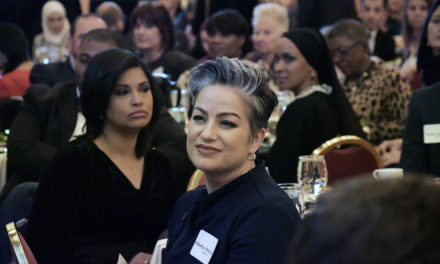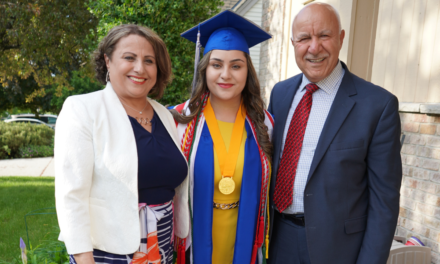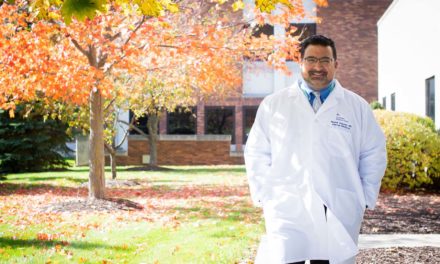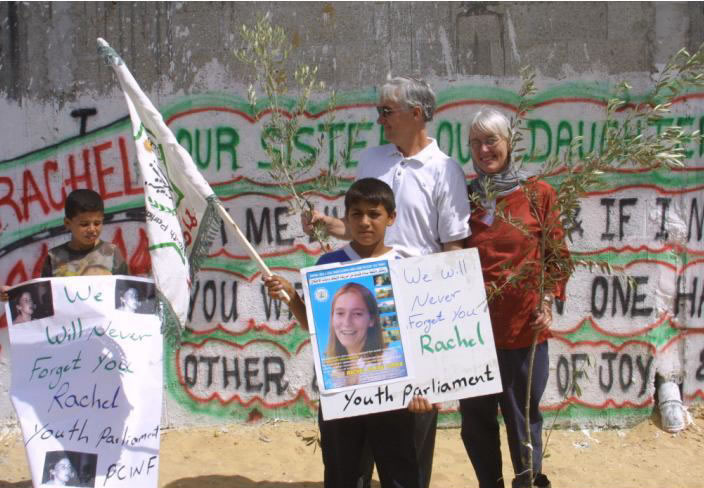
Craig and Cindy Corrie first visited Gaza in September 2003, six months after an Israeli bulldozer killed their daughter Rachel as she tried to prevent the demolition of a Palestinian family’s home. The Gaza Youth Parliament greeted them with a mural honoring Rachel and signs of appreciation.
One boy recalled how Rachel had played soccer with them. “’And then she died,’” Cindy recalled him saying. “I often wonder about him, where he is now and if he is somehow okay. If he’s alive, he’ll be a young adult now.”
Wisconsin Coalition for Justice in Palestine marks two years of Israel’s War on Gaza by hosting a talk with founders of the Rachel Corrie Foundation for Peace and Justice, Cindy and Craig Corrie. A Daughter’s Courage, Parents Bearing Witness to Israel’s War Crimes will be held at 7 p.m., Wednesday, Oct. 8, at the Islamic Society of Milwaukee Community Center, 815 W. Layton, Milwaukee.
WCJP is a coalition of more than 85 diverse organizations throughout the state calling for a ceasefire in Gaza.
Rachel Corrie: “Drop everything and devote our lives to making it stop.”
Rachel Corrie, 23, went to Gaza in 2003, as “a young woman brimming with idealism, anger at injustice and a determination to make a difference, however small,” reported The Guardian. She died March 16, 2003, run over by an Israeli armored bulldozer, trying to prevent the demolition of a Palestinian home in Rafah refugee camp.
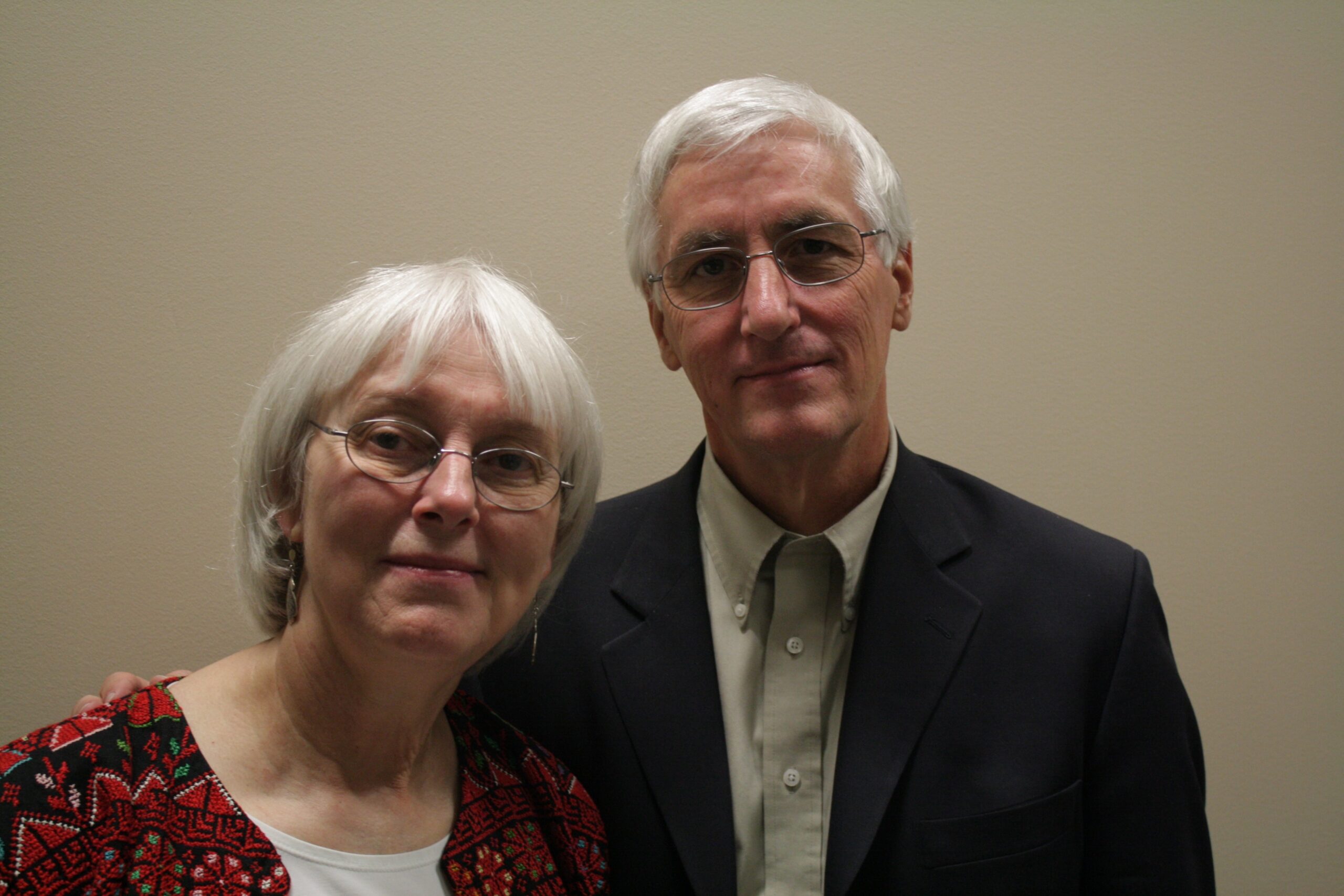
Cindy and Craig Corrie of Olympia, Washington, founded the Rachel Corrie Foundation to continue the work their daughter Rachel began as an American activist in Gaza. They have visited Gaza five times.
“Rachel brought us to the issue,” Craig Corrie noted Monday in an interview with the Wisconsin Muslim Journal. He recalled an email Rachel wrote a few weeks before she was killed: “I’m witnessing this chronic, insidious genocide and I’m really scared, and questioning my fundamental belief in the goodness of human nature … I think it’s a good idea for all of us to drop everything and devote our lives to making it stop.”
The Corries talked with WMJ about their efforts to carry on the work their daughter Rachel began, and the encouragement and inspiration they anticipate drawing from the WCJP community.
Here are the highlights.
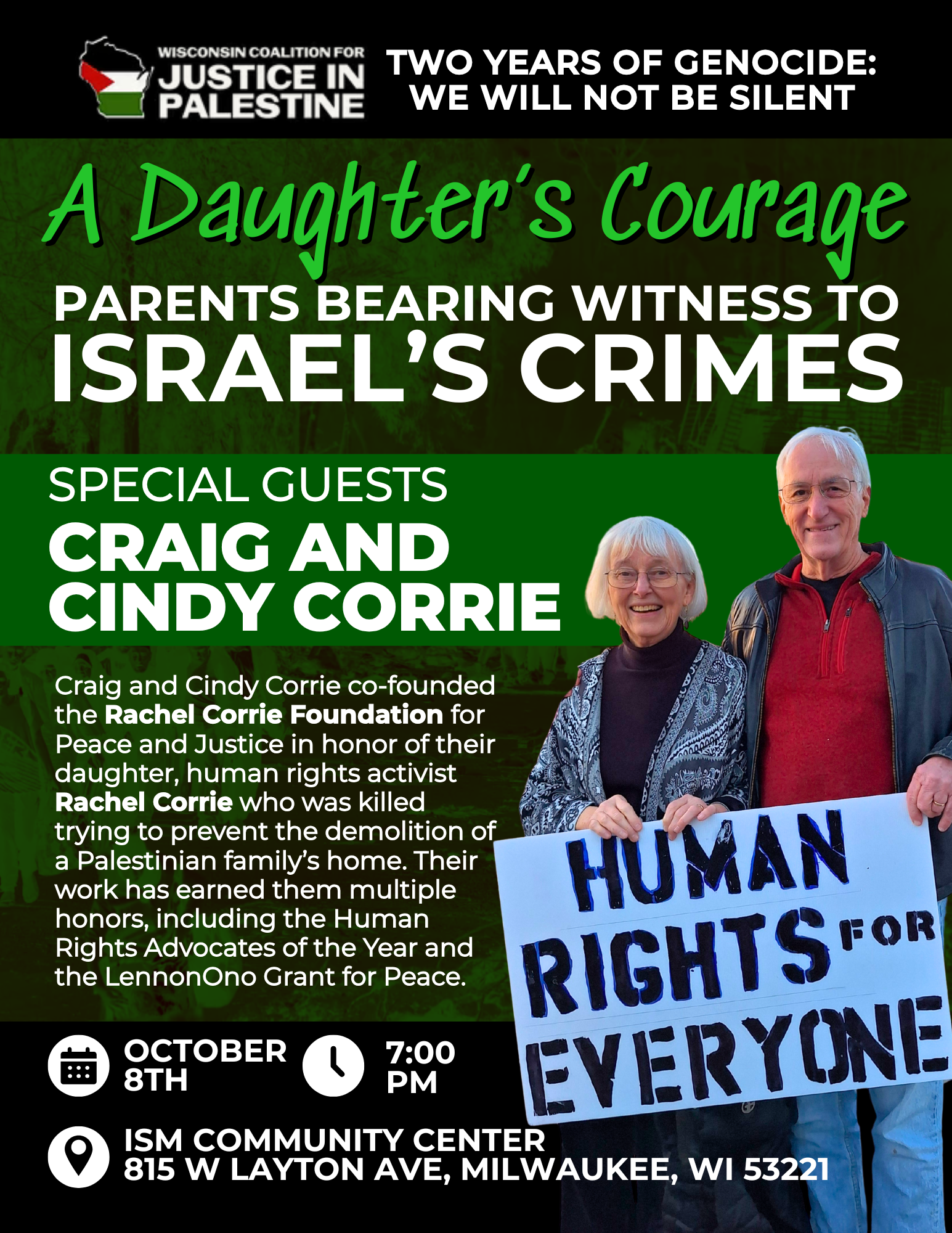
What are your thoughts about speaking on Oct. 8?
Cindy: It is difficult. I remember Oct. 7, 2023. We were at the Olympia-Rafah Solidarity Mural on Oct. 7, 2023, when we heard what happened. We felt deeply the pain of that day because we had spent time in the Israeli villages that were harmed. But now we’ve watched two years of this terrible war and see the suffering that has continued in what people much more expert than we are describing as a genocide. (The United Nations Human Rights Council issued a legal analysis Sept. 16 finding Israel has committed genocide against the Palestinians in Gaza.)
Craig: When I heard the news Oct. 7., I thought to myself, ‘It’s going to be a genocide.’ Netanyahu and his government were calling for genocide, talking about cutting off water and food. They certainly lived up to it.
I’m humbled to come in and talk. Cindy and I have been working on this issue since Rachel was killed. But we know there are so many people, especially Palestinian Americans, who have been involved much longer than we have and have much more experience than we do.
What do you plan to share with us in Milwaukee?
Craig: We hope we can bring some long-term perspective. We will talk about what was going on before, what Rachel saw and the occupation that was happening in Gaza. People would talk about peace but there was not anything peaceful about a single day in Gaza under occupation, and that’s what I think the West didn’t understand.
I don’t think the occupation justified the attack on Oct. 7 but I do think it is an explanation for that attack.
And I don’t think that attack justifies the genocide that came afterwards. Somehow, we have to find a solution to stop this killing and that solution has to include the participation of the Palestinians.
It’s not going to happen until Israel gives up permanently their designs for the Gaza strip and the West Bank. It’s clear they have not done that. In fact, they’ve redoubled working for the Greater Israel.
Cindy: Craig’s and my experience over the past 20 years includes a lot of time spent in Washington, D. C., and in meetings with people in Congress. Just a couple of weeks ago, we were in Washington, D.C., as part of a delegation of American families who had family members killed in Gaza. It was very moving to hear directly from Palestinian American families who had loved ones killed in the last two years.
We met directly with multiple senators and representatives, including Rep. Mark Pocan, who’s from the Madison area.
We will share what we have seen on that front since the time we started in 2003 until now.
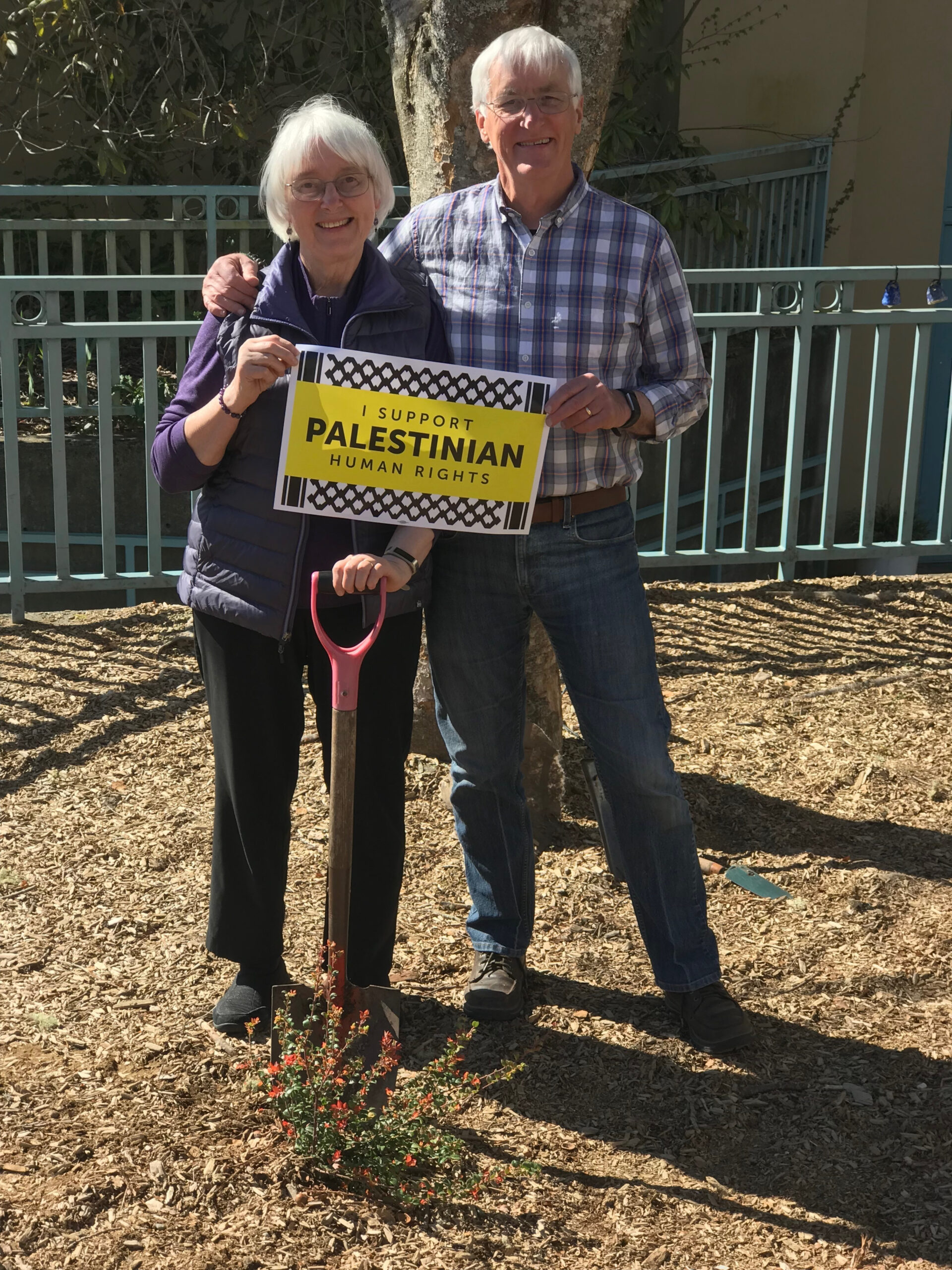
How do you stay hopeful?
Cindy: These two years have been so challenging. It’s quite easy to descend into feeling powerless to make any difference. It’s so critical we engage in gatherings like this one in Milwaukee. Craig and I draw energy from the people we interact with.
It’s a critical time. People are meeting today in Egypt to discuss a peace plan as we speak. There are a lot of questions about it and what it will mean to the Palestinians living in Gaza and elsewhere. I think it’s really important we continue to engage in what’s happening there.
You were in Milwaukee a year ago for Vanguard Productions’ “My Name is Rachel Corrie,” which was billed as a performance that would educate the audience about the horrors in Gaza before 2023. Now you’ll be back again a year later in Milwaukee, speaking about the suffering of Palestinians in Gaza.
Craig: We look forward to coming to these events in Milwaukee. You see old friends and make new friends. Like Cindy says, ‘We energize each other.’
And like Rachel said, ‘It’s time we all drop everything and devote ourselves to making this stop.’
It’s past time.

